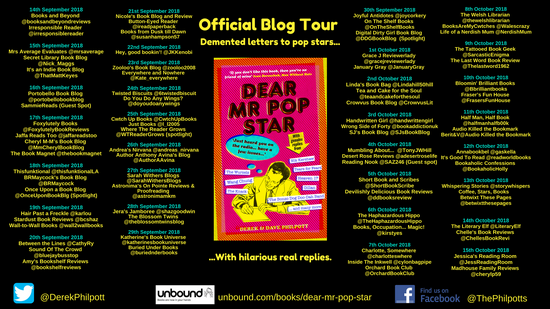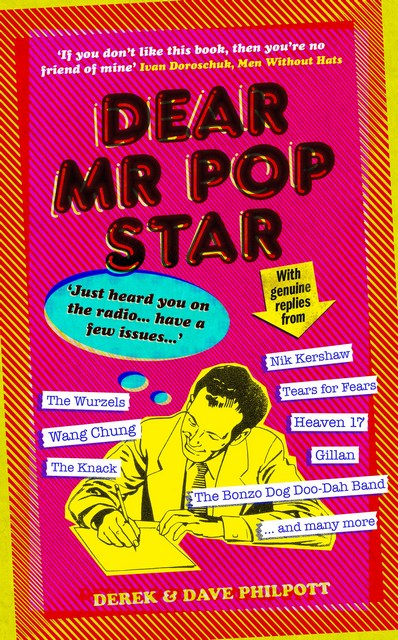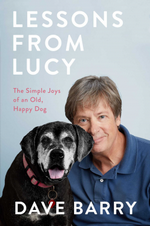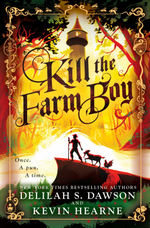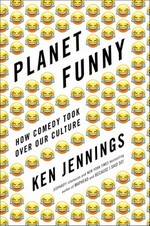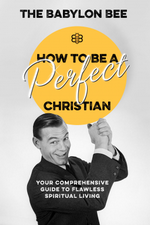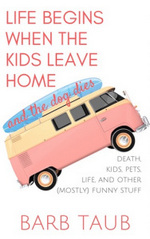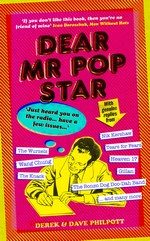 Dear Mr Pop Star
Dear Mr Pop Star
by Derek & Dave Philpott
eARC, 412 pg.
Unbound, 2018
Read: July 24 – August 7, 2018<br/
In my intro post for this Tour Stop, I said that this book was “almost indescribable” and I really mean that — the blurb for the book says, “deliberately deranged letters to pop stars from the 1960s to the 90s to take issue with the lyrics of some of their best-known songs.” And that’s right, but it doesn’t seem to get to the heart of it. The answer to the first question in the Q&A is a pretty good description, though. But if you don’t want to read that (which I get, you’re wrong — but I get it), I should probably try to convey what you’ll find here.
Let’s take a look at the letter they wrote to Starship. I don’t feel too bad about talking about this letter in detail because their take on their song “We Built this City” is common (I used to own, for example, a t-shirt that made the same joke, just in briefer form). Now, their letter goes into a great amount of detail about the nature of foundations, different types of them, etc. and how this makes their “design project” the “most ludicrous” in the history of architecture. This kind of thing is funny, and a collection of these sort of letters — as well-written as these are — would be worth the time to read and would make you laugh — I’d give it a pretty high rating, encourage you to get it, etc.
But what separates this book from similar tomes, what makes it special is that on the very next page, you get to read a response from Martin Page, who co-wrote the song. Page mounts an impassioned defense of the song — full of references to Rock classics as proof. I’ll spare the details so you can appreciate Page’s inspired choise in response. Each letter printed in this collection is answered by a songwriter, musician, or other representative of a musical act. Some of these responses debate the premise of the Philpott’s letter, some answer in the same vein, others take the premise and run with it in their own way — some appear to be in on the joke, others appears to be flummoxed that anyone would take their lyrics in this insane manner.
In particular, Tears for Fears, The Knack, and NuShooz/J. Smith had great responses — Kimberly Rew (of Katrina and the Waves) is my current favorite. EMF must have either absolutely loved or utterly hated writing their response, I cackled at it. The Human League and Wang Chung composed very long responses — some are as short as a paragraph or three. I really could keep listing some other distinctives about the responses, and great ones to look for — but this is already getting pretty long.
They also include some lIttle notes or postcards like the one to ELO, talking about the impossibility of their name; to “Mr. John” about the unacceptability of violence on any night; or to John Parr (involving canonization of a particular Muppet, and the danger of exposing him to flame) — I just reread that one and cracked up, again. These probably couldn’t support being stretched into a letter of any length, and there are no responses printed — but are very likely the most funny parts of the book.
There’s an elevated vocabulary used by the Philpotts — this isn’t an uneducated reaction to lyrics. The letters are frequently erudite and earnest. The letters don’t come across as something written for comedic effect — yes, they’re funny. But that’s not the intention. Somehow, that happens without turning the joke back on them for misunderstanding the lyrics, either. They’re a strange kind of tribute, but this kind of close reading of a lyric is a form of flattery.
Many of the acts haven’t made much of an impact in the States, and I clearly don’t know enough about British Pop Music to understand each of these — but thanks to youtube and lyrics websites, I was able to get the gist of what I was supposed to be reading about (and I was able to enjoy those I was feeling too lazy to look up). But by and large these are acts and songs that are well-known enough that this book is accessible to readers from around the English-speaking world (and maybe larger, I’m not an expert on music listening habits). The acts run the gamut from Herman’s Hermits to Judas Priest and many, many points in between.
I cannot stress enough how much fun I had with this book — I read whole letters or notes aloud to family members, and/or forced them to read one for themselves. These are the perfect literary equivalent of potato chips, you can eat a handful at a time and then leave the bag for later (along those lines, it’s possible to read too many at once). The letters are short enough that you can just dip in and out of the book. And, I can assure you, these are the kind of thing you can return to later and still enjoy — not unlike a good pop song (huh, wonder where I got that imagery?) A combination of satire, analysis, tribute and comedy — without any meanness or cruelty — Dear Mr Pop Star will appeal to music lovers from all sorts of eras. Do yourself a favor and grab this today.
Disclaimer: I received a copy of this book from the authors in exchange for my participation in this tour stop.
—–



